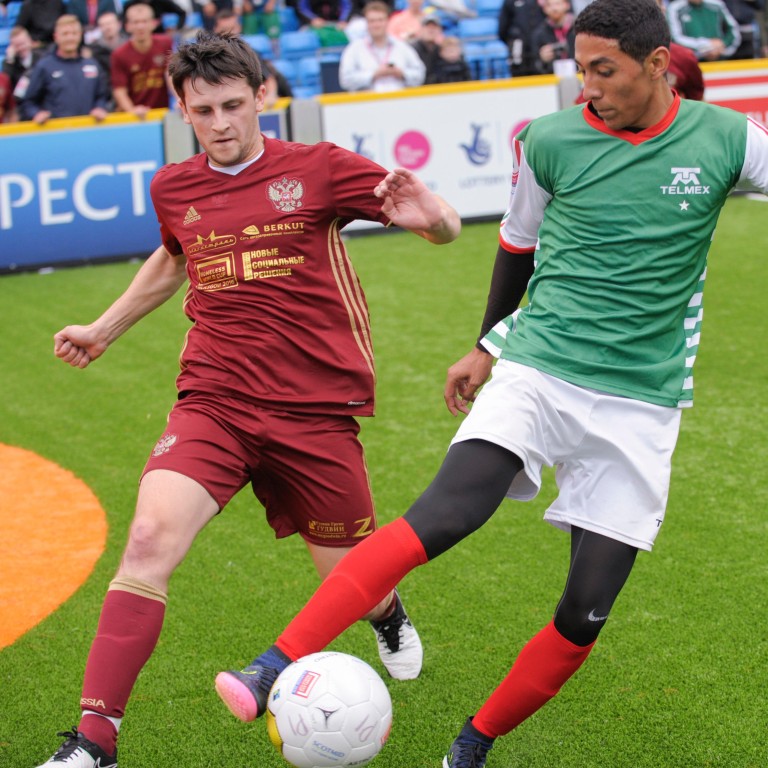
Homeless World Cup soccer tournament is beacon of hope for Hongkongers with troubled pasts
Annual soccer tournament is the chance of a lifetime for former drug addicts, alcoholics and rough sleepers. To earn a spot on the team headed for Mexico, players must show determination and growth on and off the field
On a soccer pitch in a cavernous Hong Kong shopping centre, a group of men lace up their trainers and change into matching jerseys. They get to work stretching, running drills and having a kick-around. Soon their shouts and the smack of soccer balls hitting the walls around the pitch echo past shopfronts and the centre’s last remaining shoppers.
Seyed Meeran Naina Marikar, 19, moves quickly across the pitch. He passes a ball back and forth with teammates, winds up for a kick, and watches as the ball soars past the goalkeeper and into the net.
Priced out and living above a rubbish dump: where do Hong Kong’s rough sleepers go?
Meeran is no stranger to Hong Kong’s shopping centres. He often slept in them during bouts of homelessness in his mid-teens. Tonight, however, Meeran is at the D Park shopping centre in Tsuen Wan for a different reason: to compete for a spot on the team representing Hong Kong in the 2018 Homeless World Cup.
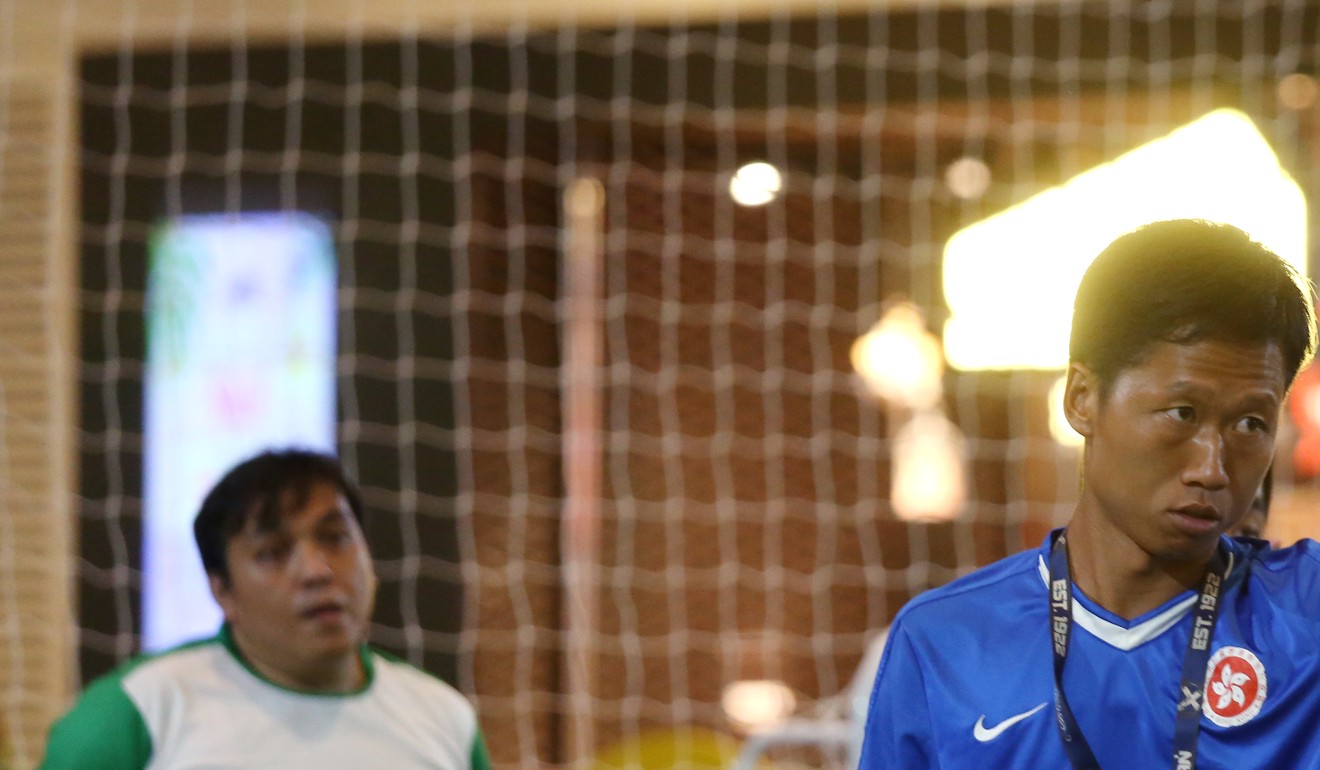
There are nearly two dozen others like Meeran, all sprinting, high-kicking and dribbling balls. Strictly speaking, none are presently homeless – but all have experienced homelessness recently, or have struggled with various forms of addiction or run-ins with the law. Whatever their background, for most of the men a trip to Mexico City – where the competition will be held this November – would have seemed all but impossible until June, when the try-out season began.
Only eight men will make the final cut. But according to coaches and players even the try-outs present a can’t-miss opportunity to turn lives around.
“What is important is that the players grow,” says the team’s head coach, Eddie Wan Yuen-hung. “We tell them, ‘Try your best. Don’t think about the results’.”
The Homeless World Cup, first held in Graz, Austria in 2003, was founded by an Austrian and s Scot who believed teamwork could help people out of the isolation of homelessness. Today, the annual tournament attracts men’s and women’s squads from more than 70 countries and territories.
Hong Kong fielded its first men’s team in 2006, when Ng Wai-tung, an advocate for the homeless with the Society for Community Organisation (SoCO), formed a team of men he had met through his work.
Number of people sleeping in McDonald’s soars six-fold in five years
That year, the team flew to the tournament held in Cape Town, South Africa, on a shoestring budget. It has since attracted backing from the Hong Kong Jockey Club and sponsorship from Nike.
In 2013, SoCO and Wofoo Social Enterprises, a wide-reaching charity network in Hong Kong, partnered to establish Street Soccer, the organisation that now oversees operations for the city’s Homeless World Cup team. The programme additionally expanded to admit players who had not experienced homelessness, but showed just as much potential to benefit.
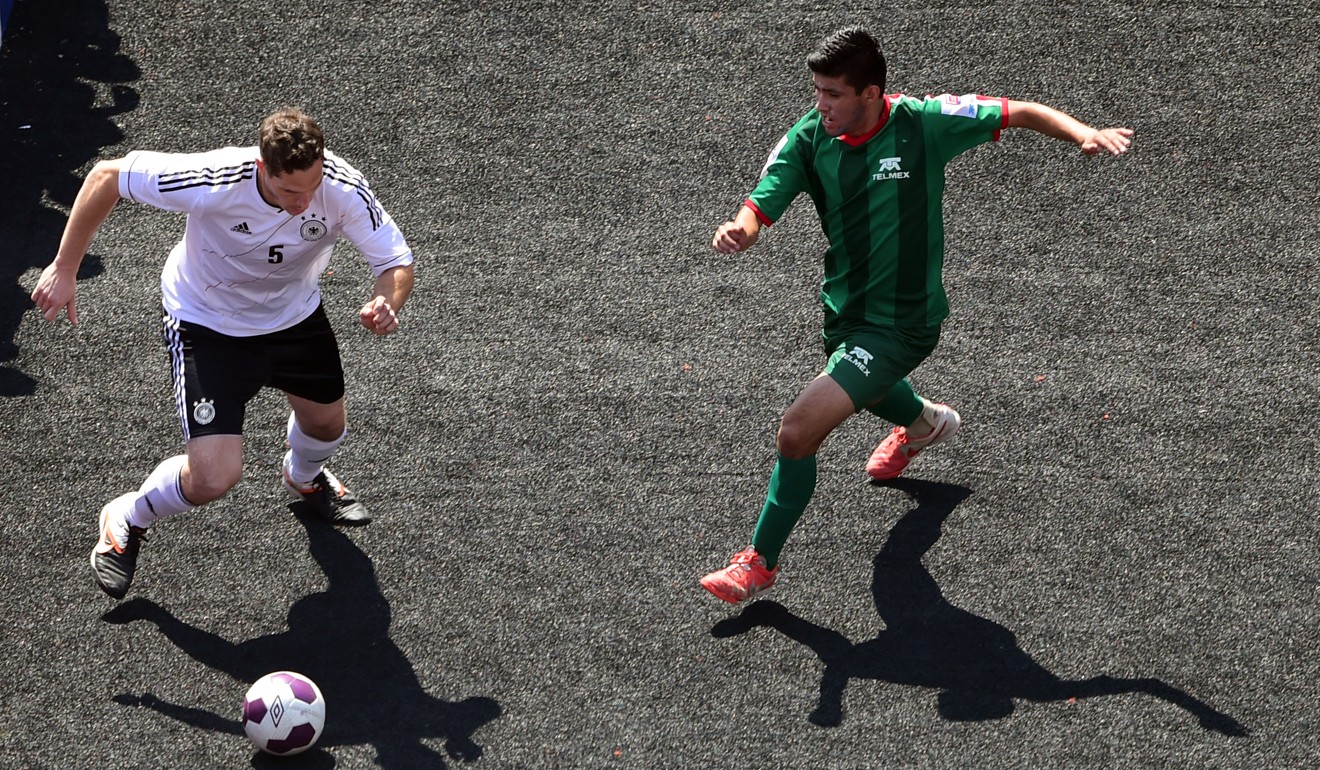
“The game helps the players become more mature and resilient,” Ng says. “They learn about life by playing football here.”
Meeran learned about the programme through friends he plays with in a street league, including one who played on the Hong Kong Homeless World Cup team in Oslo, Norway, last year. An avid soccer player himself, Meeran thought it sounded like a great opportunity.
I feel like I’ve finally got a healthy and normal life. My fun doesn’t have to come from clubs and drugs. I can sweat and have fun here on the field.
In high school, Meeran says, he behaved badly and frequently butted heads with the adults in his life. “I wasn’t always in control of myself,” he says.
Trouble at home and school led Meeran to run away in 2013. Over the course of three years, he periodically found himself sleeping on the streets, or in shopping centres, when he was lucky not to be kicked out by security guards. A visit to his native India gave him perspective on his behaviour, Meeran says, and he became determined to improve himself. For Meeran, the Street Soccer team represents part of a larger journey to find a stable path forward in life.
“The team pushes you to do something good for yourself,” he says. “Like, are you up for it? To show up, and to change yourself?”
Twenty-four men started in the running for Hong Kong’s team this year, up from last year’s 18. The final cut won’t be made until November, but the selection process is already a popular topic of conversation at training sessions.
“I have a 99 per cent chance of making it,” says one player on the sidelines.
“Well, I have a 99.5 per cent chance,” quips his buddy, Lee Ho-pui.
Lee, 27, began playing soccer when he was young, but he quit in high school when he fell in with a bad crowd and developed a drug habit he couldn’t kick. Lee is in the middle of his fifth stint in a rehab centre and hopes it will be his last. For him, the team has been a source of encouragement.
How a listening ear can help prevent youth drug abuse
“I feel like I’ve finally got a healthy and normal life,” Lee says, wiping sweat from his forehead during a break in practice. “My fun doesn’t have to come from clubs and drugs. I can sweat and have fun here on the field.”
Lee, like Meeran, shows drive and athleticism on the pitch. But on this team, he knows, attitude and dedication are what counts.
To make the team, a lot is expected of the players. First and foremost they must avoid slipping into old habits. The men are tested for drug use regularly, which has resulted in a few falling out already this year. Players are expected to attend 80 per cent of training sessions, held twice weekly over four months – and there are no excuses for absence. The players are responsible for bringing their own ball to training, and for washing their kit.
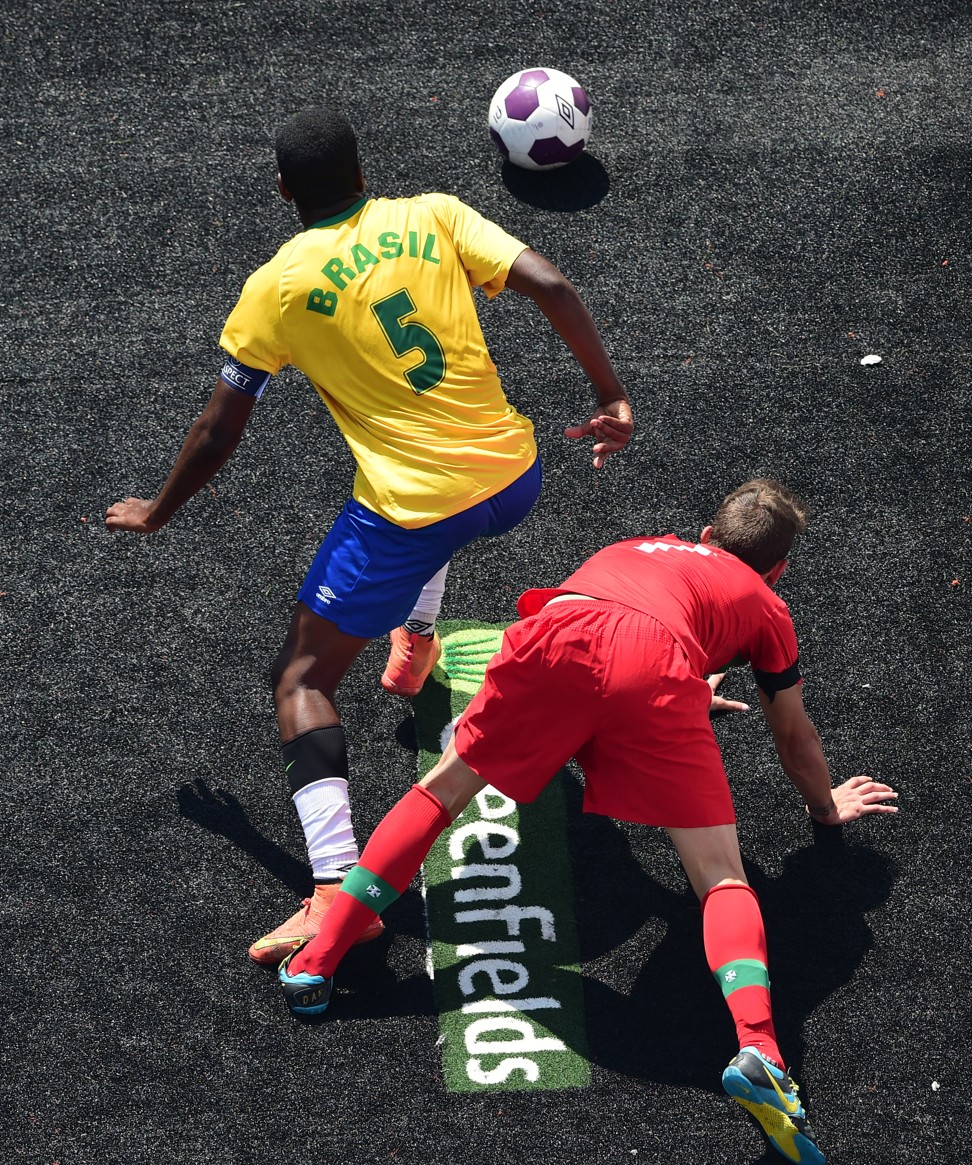
All this rigour isn’t just about making the men better soccer players, says head coach Wan, but about instilling discipline that will be useful to them on and off the pitch.
“Constant determination is the goal,” says Wan. “Just because you get three goals, that doesn’t mean you can let up, or suddenly you will lose four. It’s the same in life.”
Home away from home provides care and life skills for troubled girls
In September, Street Soccer panels will interview each player. Based on players’ responses to questions about obstacles they have overcome and goals for their future – as well as the effort and teamwork coaches have observed from them – the field of competitors will be narrowed down to about a dozen. Then, in November, the final eight will be selected.
According to Chan Chung-yin, a colleague of Ng’s at SoCO and Street Soccer, this is often a challenging process, given the hard work the players have put in.
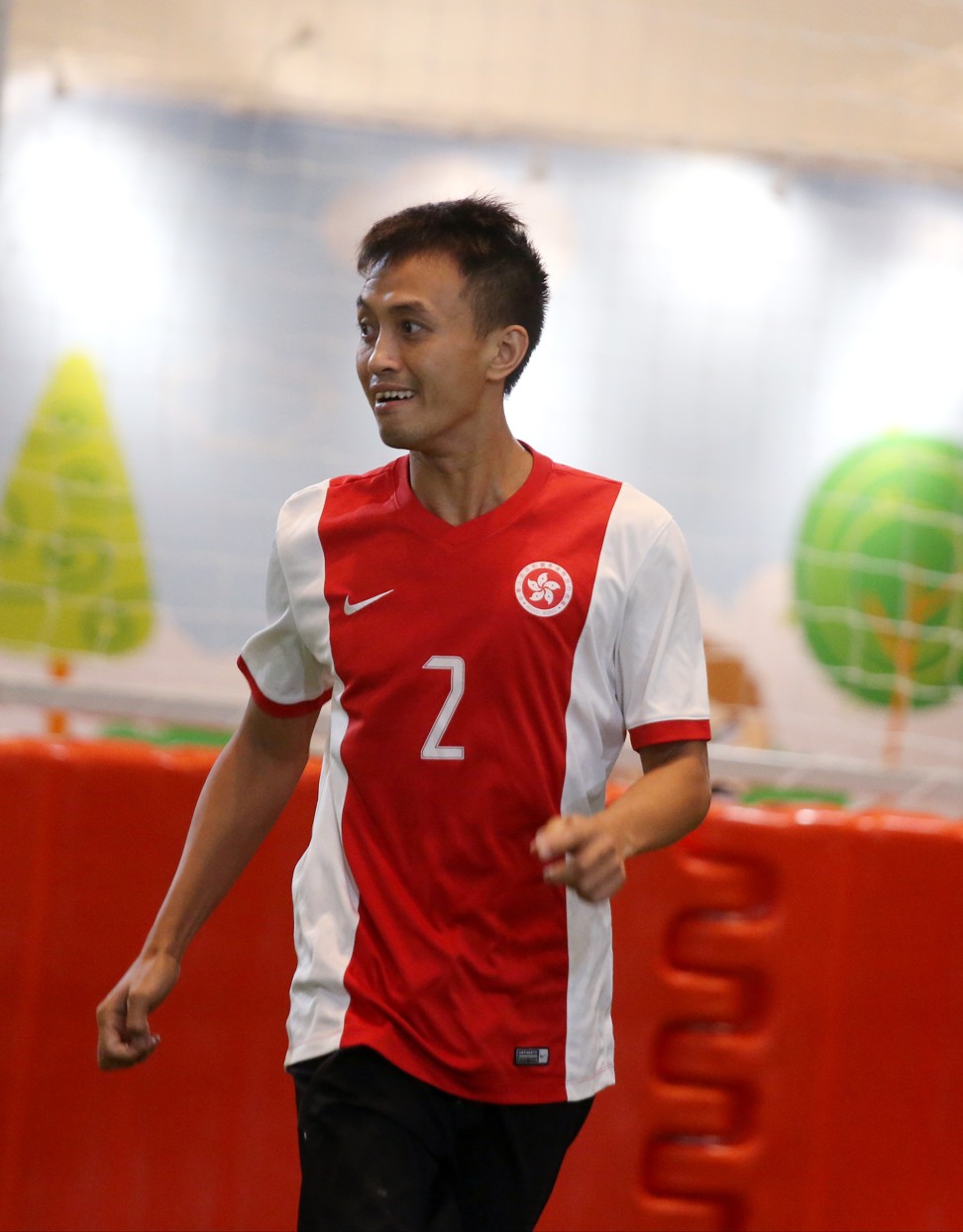
Wong Chi-kong, who travelled to Oslo as a member of last year’s team, remembers the nerves he felt waiting to find out if he had made the cut. After practice on selection night, the players gathered in a restaurant, watching their phones and hoping for a call. Wong’s was the fourth to ring.
I want to pass on what I have learned. I was once on a similar path as the players, and I know that you can’t change everything on your own.
He answered with a flat tone, Wong recalls, not wanting those who might not make it to feel bad about themselves. But he was over the moon.
For Wong, who had a history of drug use, the Homeless World Cup brought many firsts. It was his first trip abroad, first time on a plane, and first time being interviewed by a radio station.
Wong and his teammates had spent much of their lives feeling they were on the bottom rungs of society, but suddenly there they were meeting Chief Executive Carrie Lam Cheng Yuet-ngor, the head of Hong Kong’s government, at the team’s benefit fundraiser last autumn. Another high-ranking government figure travelled with the team to Oslo and watched as they took to the field last year. Wong felt deep pride wearing the Hong Kong flag on his shirt – representing his city to the world.
After taking part in the Homeless World Cup once, players cannot compete again, so that others can have their chance. But when the team returned to Hong Kong last year, Wong didn’t want to leave behind what he considered a life-changing experience. Now 30, he stayed on as an assistant coach.
“I want to pass on what I have learned from my experience,” Wong says. “I was once on a similar path as the players, and I know that you can’t change everything on your own.”
On practice nights, Wong leads the team in drills and helps Wan demonstrate technique. But as practice nears its conclusion, he often gets in on the action himself. On fresh legs, Wong and the two other assistant coaches – also former Homeless World Cup team members – push the players to keep up and get the most out of the last minutes of training.
When practice is over, the players form a circle, and Wan reviews key lessons from the session. The men find their bags on the sidelines, joking around as they dry off and change out of their kit. It has only been two months, but many have already made friends.
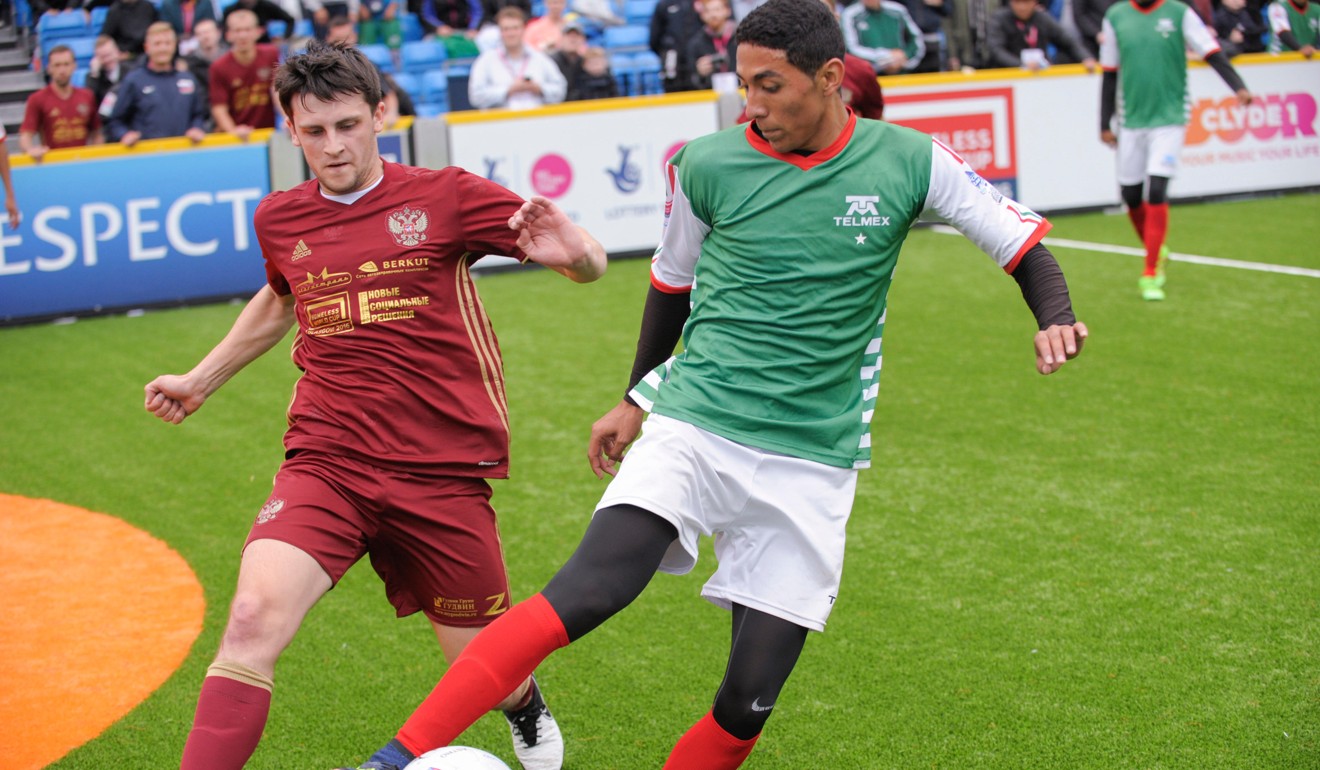
Meeran will head home for the night to Tsim Sha Tsui, where he lives with his parents. He’s had a long day, having already attended training with another team earlier in the day. “I’m very tired,” he says, with a laugh.
For Lee, it’s back to the rehab centre, along with another member of the team. Lee is all smiles, though, and looks forward to what the future holds.
“I’m happy because it will be my last time at the centre,” Lee says. “I’m confident it will be.”


